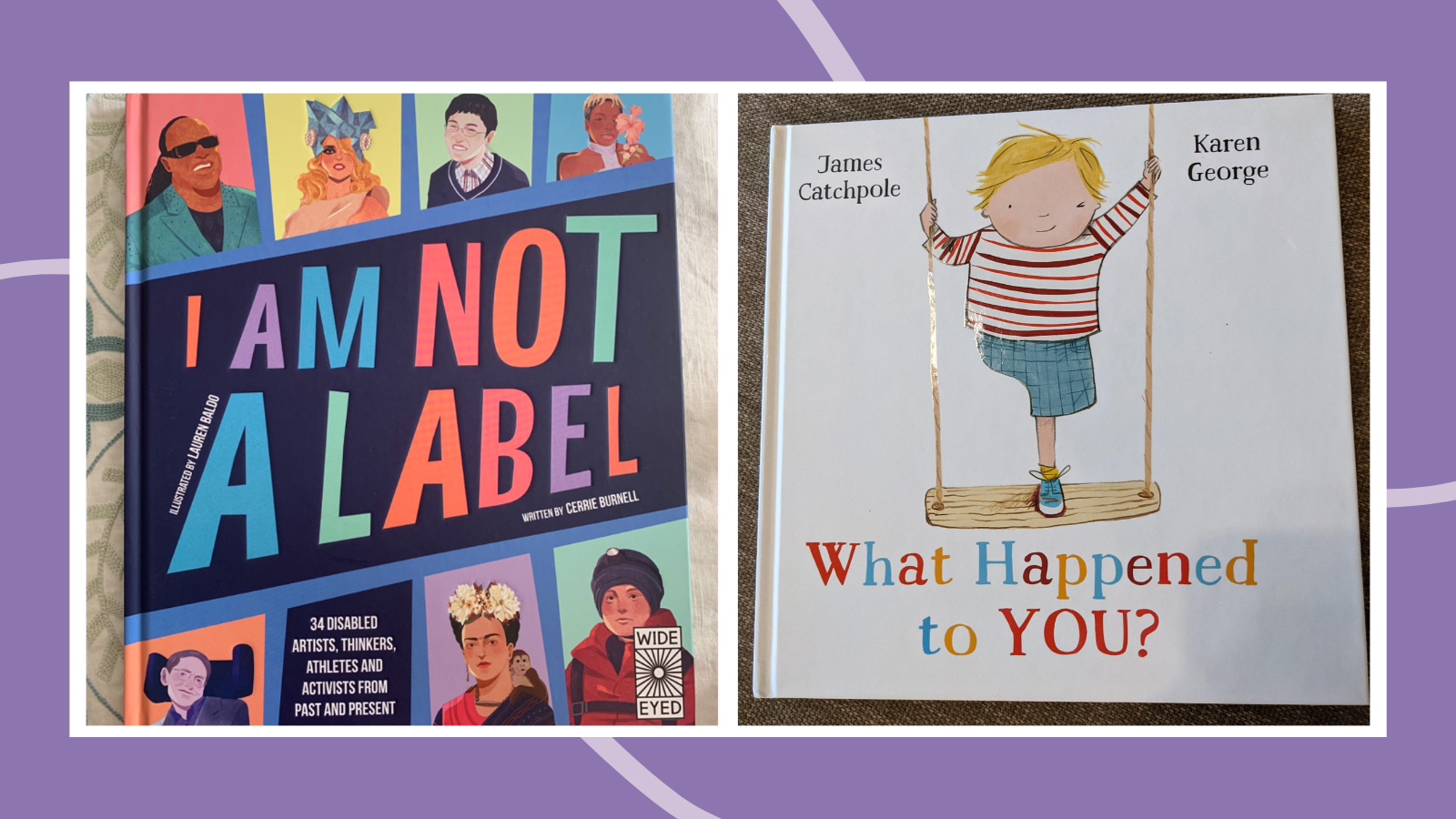Including children’s books about disabilities in our classroom libraries is as essential as any other type of diversity representation. It’s also important to have books that incidentally feature disabled people in the stories and illustrations; in the same way we need books about Black joy and stories about LGBTQ+ kids and adults in our “Family Books” bins, we need books about characters who use mobility aids that aren’t about the challenges of using a wheelchair. We also need to make sure that our books that celebrate the diversity of the human experience—like odes to bodies, families, homes, and favorite pastimes—include representation of disabled people within their pages.
How We Chose These Titles
When researching the best children’s books about disabilities to share in the classroom, we learned a lot from children’s publishing agents James and Lucy Catchpole. They are disabled, and they give great tips for teachers on their blog. (See their own picture books below too!) To create this list, we took their advice and prioritized books written by disabled authors—or at least positively reviewed by disabled individuals or their families. We looked for books that tell the stories of disabled people from their own points of view. We were cautious about books that include stereotypical tropes about disabled people (like assuming that all disabled people welcome personal questions about their disability or want to be considered “amazing” or “inspirational”).
Let’s also actively choose children’s books about disabilities that promote anti-ableism. University of San Diego professor Suzanne Stolz talks about “building an anti-ableist pedagogy” in schools as a social justice effort, in the same vein as striving toward anti-racism. “Ableism” means assuming that one-size-fits-all approaches to moving, communicating, learning, and using spaces and facilities are the best ways. An ableist outlook may view a disability as an unfortunate or inconvenient deficit. Anti-ableism focuses on the abilities of disabled individuals and celebrates chances to adapt the environment to best fit those abilities.
Children’s Picture Books About Disabilities and Including Disabled Characters
1. We Move Together by Kelly Fritsch and Anne McGuire
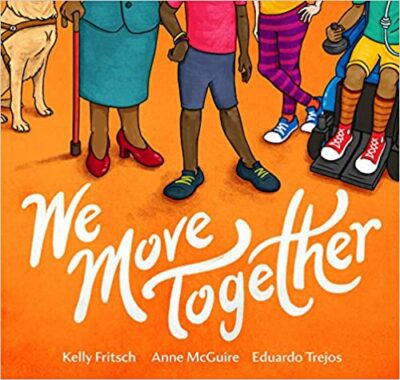
This gem celebrates human connection and calls for collective anti-ableist activism. The resource section at the back of the book helps classes talk about ableism, accessibility, and more. It’s an all-ages book with many layers.
Buy it: We Move Together on Amazon
2. What Happened To You? by James Catchpole
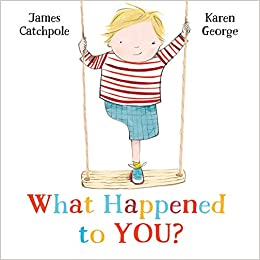
Joe is deep into a game of pirates at the playground when other children begin asking him questions about why he has one leg. Joe deftly keeps the focus on play, teaching his playmates about empathy and privacy. This is an important book for talking about respectful responses to (any) differences. Definitely check out the free lesson plans from the author’s website and his personal reasons for writing the book.
Buy it: What Happened to You? on Amazon
3. You’re So Amazing! by James and Lucy Catchpole
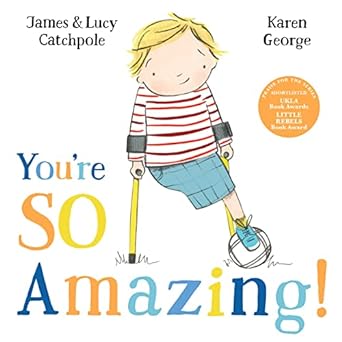
Joe’s back in this sequel to What Happened to You?, enjoying his large crew of buddies on the playground. The trouble is, adults keep interrupting his fun to comment how “amazing” it is that he can play despite his disability. In an interview, author James Catchpole shares: “Joe’s second adventure asks: Does Joe have to be Amazing Joe or Poor Joe? Can’t he just be … Joe?” Kids and adults need to hear this story that challenges commonly assumed narratives about people with disabilities.
Buy it: You’re So Amazing! on Amazon
4. Bodies Are Cool by Tyler Feder
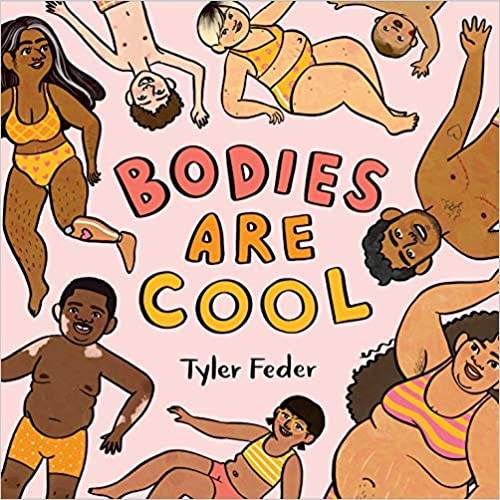
This catchy and ultra-inclusive celebration of bodies celebrates the many ways people look, move, and enjoy life. The illustrations include—but don’t call out—representation of mobility devices, limb differences, prosthetics, glasses, service animals, and medical devices such as a diabetes pump.
Buy it: Bodies Are Cool on Amazon
5. Mama Zooms by Jane Cowen-Fletcher
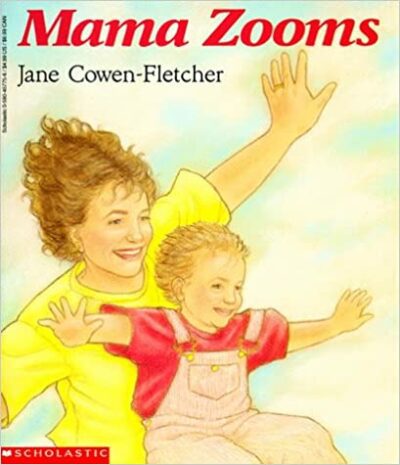
Add this joyful title to your collection of books about families! A young boy zooms through the day on his mom’s lap in her wheelchair.
Buy it: Mama Zooms on Amazon
6. Little Senses series by Samantha Cotterill
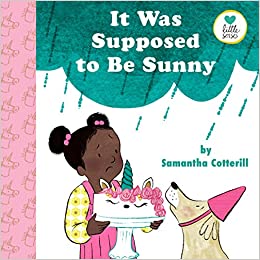
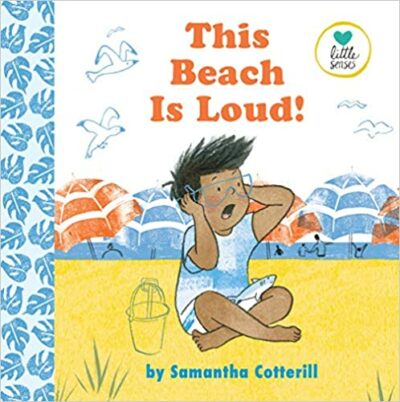
Written by an author with autism, these stories encouragingly highlight common experiences for neurodivergent kids. Many children can relate to having to cope at noisy places, manage schedule changes, try new foods, or figure out another’s feelings.
Buy it: Little Senses series on Amazon
7. Come Over to My House by Eliza Hull and Sally Rippin
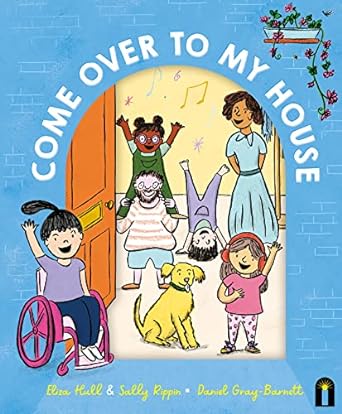
Playdates can be so exciting for kids as many kids are intrigued by other peoples’ spaces and families. This invitation to learn about friends’ homes includes adults and kids with and without disabilities. It touches on accommodations disabled people may use at home, such as different furniture, tools, or help from others. The back matter has more detailed “introductions” to the children in the book, which could help answer students’ questions.
Buy it: Come Over to My House on Amazon
8. Can Bears Ski? by Raymond Antrobus
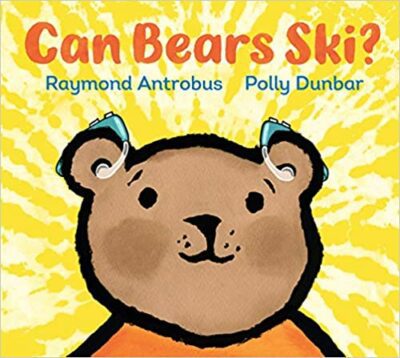
A young bear shares his early experiences with deafness. Others keep asking him something that sounds like “Can bears ski?” When his family learns more about how to best communicate with him, he’s joyfully able to understand (and answer) the question “Can you hear me?”
Buy it: Can Bears Ski? on Amazon
9. Lone Wolf by Sarah Kurpiel
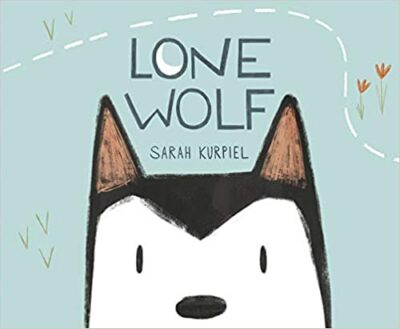
Here’s an example of a children’s book that’s not about disabilities but can increase representation in your classroom library. People ask Maple, a family husky, if she’s really a wolf … so often that she starts to wonder. The author uses a power wheelchair and shows one of the family members in the illustrations using one too.
Buy it: Lone Wolf on Amazon
10. Logan’s Greenhouse by JaNay Brown-Wood
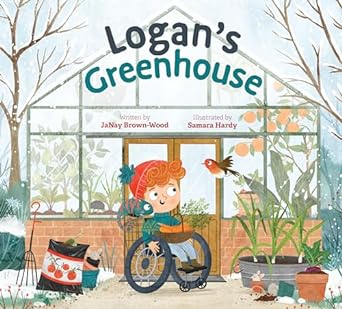
Logan needs carrots for his upcoming “pet playdate.” He looks all over his greenhouse, noticing lots of other plants before he finally finds the crunchy orange snacks he wants. Logan uses his wheelchair to move around his accessible greenhouse and collect produce, but those details aren’t the focus of the story—the veggies are!
Buy it: Logan’s Greenhouse on Amazon
11. I Talk Like a River by Jordan Scott
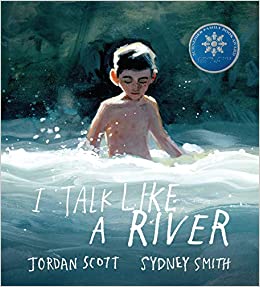
This personal narrative explains how the metaphor of a flowing river helped the author feel less alone with his stuttering. This title would be a powerful addition to your collection of personal narrative writing mentor texts.
Buy it: I Talk Like a River on Amazon
12. I Am a Masterpiece! by Mia Armstrong
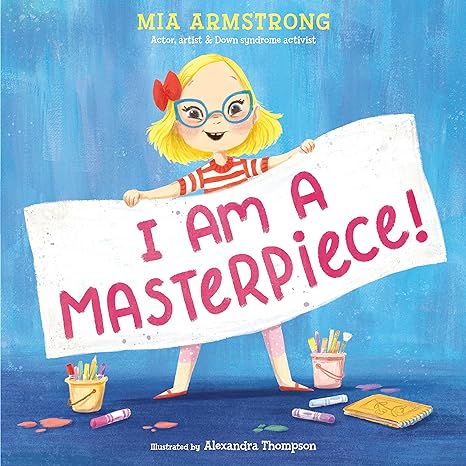
Mia Armstrong made history as the first child with Down syndrome to voice a cartoon character on Netflix. She’s an accomplished artist and activist too. This story celebrates some of her everyday experiences like shopping for shoes, hanging out with her friends, and navigating a school art project.
Buy it: I Am a Masterpiece! on Amazon
13. Brilliant Bea by Shaina Rudolph and Mary Vukadinovich
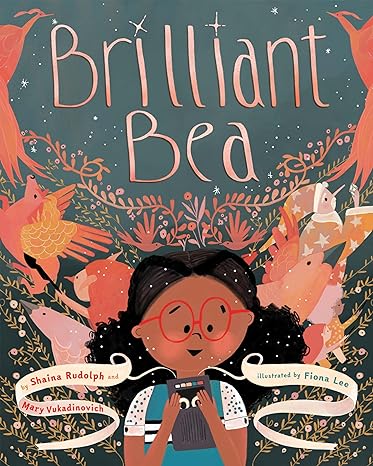
Reading and writing in class is stressful for Bea, but her teacher helps her unleash her brilliance by introducing her to an old-fashioned tape recorder for capturing her stories and ideas. Not only is this an expert-vetted and thoughtful representation of possible experiences of someone with dyslexia, it can help frame conversations about the value of any accommodations in the classroom that help someone thrive.
Buy it: Brilliant Bea on Amazon
14. My Three Best Friends and Me, Zulay by Cari Best
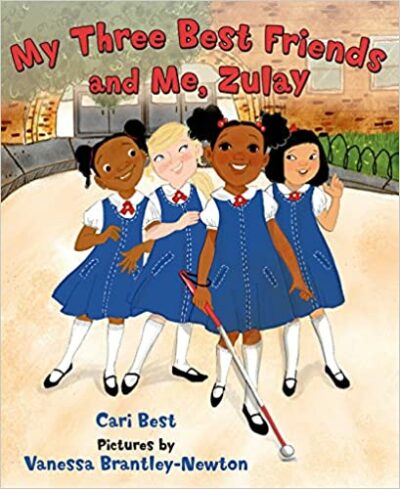
Zulay is a blind first grader. She’s already learned to read and write braille, climb trees, swim, and has a fun crew of friends. She’s learning to use a cane, and she works determinedly to run a race on Field Day. We like how the rhythmic text and Vanessa Brantley-Newton’s illustrations make this book feel fresh and fun, and not overly teach-y.
Buy it: My Three Best Friends and Me, Zulay on Amazon
15. More Than Words: So Many Ways To Say What We Mean by Roz MacLean
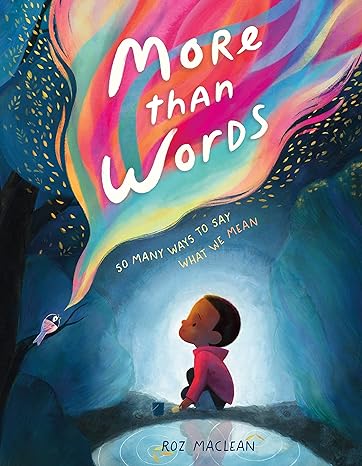
Nathan doesn’t say many words, but he notices a lot about the people around him and how they share their ideas and feelings. Whether it’s through talking, making sounds, moving, writing, using braille, sign language, or AAC (Augmentative and Alternative Communication) tools, everyone has something valuable to say. This is an ideal elementary classroom read-aloud about the many ways people can express themselves.
Buy it: More Than Words: So Many Ways To Say What We Mean on Amazon
16. Mara Hears in Style by Terri Clemmons
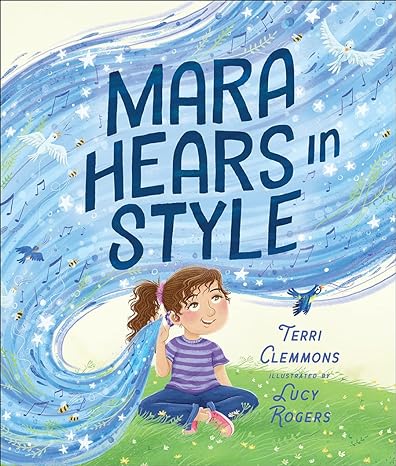
This book about starting at a new school stars Mara, who wears hearing aids, reads lips, and uses sign language. Her first day has some tricky parts, but as she and her classmates learn more about each other, friendship grows. This is a straightforward and empowering title to open conversations about how a hearing-impaired person might experience a busy, noisy school setting.
Buy it: Mara Hears in Style on Amazon
17. Daisy the Daydreamer by Jennifer P. Goldfinger
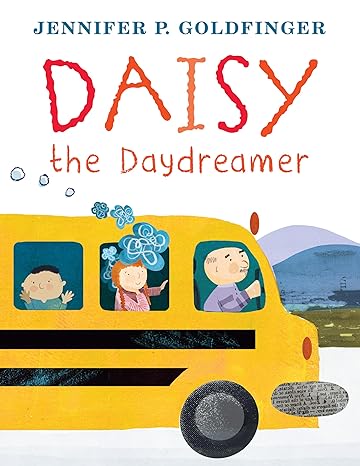
Daisy’s imagination definitely makes life more interesting for her, but sometimes it takes on a life of its own—and can make it look like she’s not listening at school. Inspired by the author’s own experience as someone with ADHD, this story and its whimsical illustrations give kids a concrete way to talk about how people’s brains work differently and benefit from different ways to show what they know.
Buy it: Daisy the Daydreamer on Amazon
Informational Children’s Books About Disabilities
18. Not So Different: What You Really Want To Ask About Having a Disability by Shane Burcaw
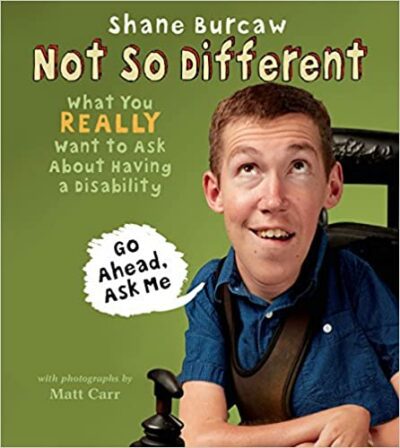
The author uses photos and examples from his own life to answer FAQs and normalize disability for kids. He has a great sense of humor, which makes for an accessible, lighthearted tone. Just give it a read-through first to make sure your students with disabilities would feel comfortable hearing the book shared in a group. Also, point out that while Shane is eager to share personal details, not all disabled people feel the same.
Buy it: Not So Different: What You Really Want To Ask About Having a Disability on Amazon
19. Rescue & Jessica: A Life-Changing Friendship by Jessica Kensky and Patrick Downes
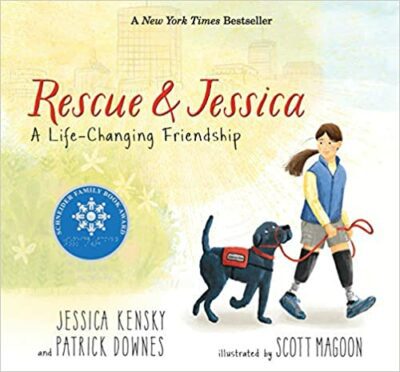
If you’re looking for children’s books about disabilities featuring service dogs, choose this one! Jessica Kensky, an amputee, shares how her black lab is both a service dog and a treasured companion.
Buy it: Rescue & Jessica: A Life-Changing Friendship on Amazon
20. All the Way to the Top: How One Girl’s Fight for Americans With Disabilities Changed Everything by Annette Bay Pimentel
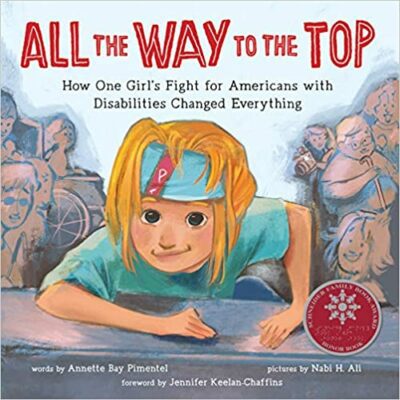
As an 8-year-old with cerebral palsy, activist Jennifer Keelan-Chaffins crawled to the top of the Capitol steps. This Capitol Crawl protest helped spur Congress to pass the Americans With Disabilities Act (ADA) in 1990. The resource section teaches readers more about the history of the ADA as well as the work still to be done.
Buy it: All the Way to the Top: How One Girl’s Fight for Americans With Disabilities Changed Everything on Amazon
21. I Am Not a Label: 34 Disabled Artists, Thinkers, Athletes and Activists From Past and Present by Cerrie Burnell
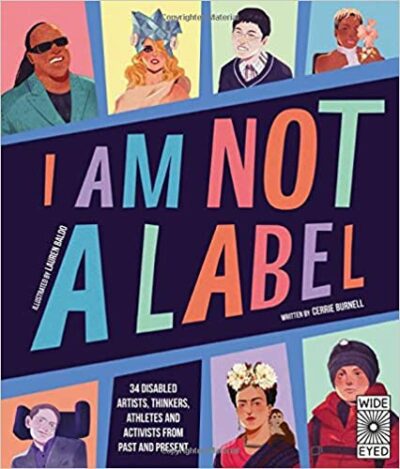
The author explains that this collection of mini-bios is a children’s book about disabilities she wishes she had as a kid. A fantastic classroom resource for browsing and sharing.
Buy it: I Am Not a Label: 34 Disabled Artists, Thinkers, Athletes and Activists From Past and Present on Amazon
22. Tenacious: Fifteen Adventures Alongside Disabled Athletes by Patty Cisneros Prevo
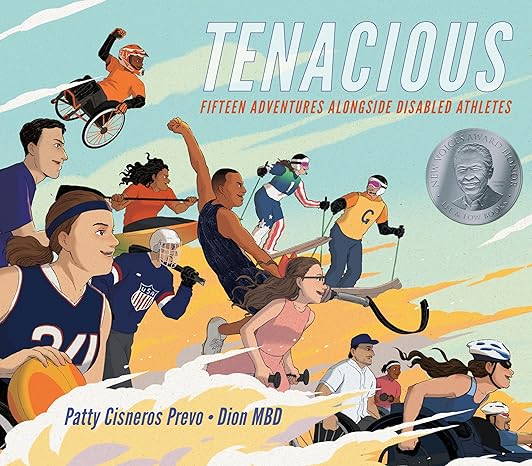
Two-time Paralympic gold medalist Patty Cisneros Prevo collected stories, reflections, and advice from a diverse list of disabled athletes past and present for this book. Kids who love sports will love learning about these athletes’ individual trials and achievements.
Buy it: Tenacious: Fifteen Adventures Alongside Disabled Athletes on Amazon
Middle Grade Children’s Books About Disabilities and Including Disabled Characters
23. & 24. The Chance To Fly and Cut Loose! by Ali Stroker and Stacy Davidowitz
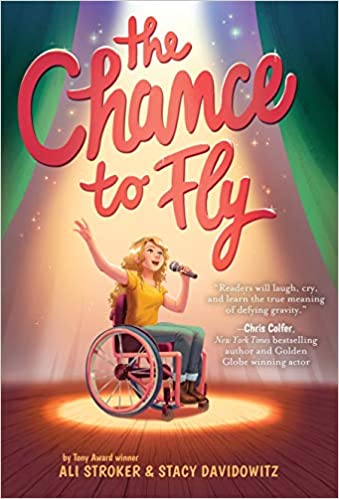
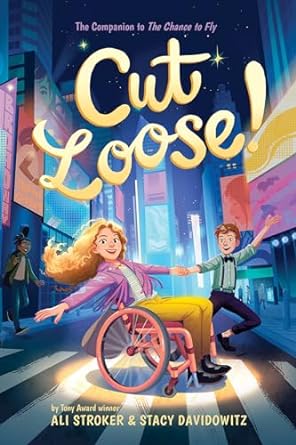
Ali Stroker was the first person in a wheelchair to be cast in a Broadway show, so she’s well suited to write about 13-year-old Natalie, whose biggest dream is to be a musical theater star. Natalie’s experiences—with friends, seeking independence, sticking up for herself, and pursuing her passion—will be relatable and empowering for many kids.
Cut Loose! follows Natalie into eighth grade at a new school and her second big production. Fans of the series are thrilled to have a sequel to enjoy.
Buy it: The Chance to Fly Series on Amazon
25. El Deafo: Superpowered Edition! by Cece Bell
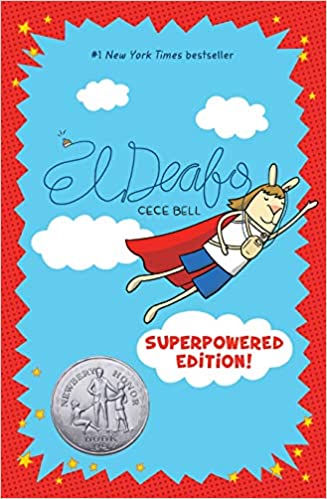
Upgrade to the more recent edition of this classroom library staple! It has new back matter with photos from the author’s life and early sketches from the book. Cece Bell based this graphic novel on her own experiences with deafness—her “superpower.” The author’s note can help kids learn about varied experiences in the Deaf community.
Buy it: El Deafo: Superpowered Edition! on Amazon
26. & 27. Frankie’s World and Finding My Voice by Aoife Dooley
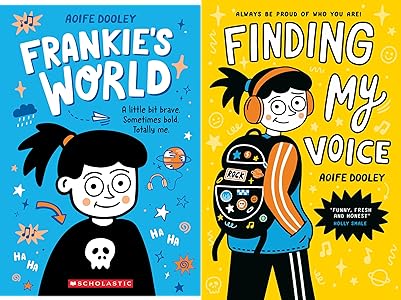
In these graphic novels by popular Irish comedian Aoife Dooley, who was diagnosed as autistic as a young adult, Frankie goes through the typical ups and downs of being a tween. People think Frankie talks too much, is too sensitive, and has weird tastes. In the first series installment, she navigates finding her birth father and an autism diagnosis. In the second title, she must tackle the challenges of collaborating in a group to work toward her dream of earning a spot in a Battle of the Bands competition.
Buy it: Frankie’s World series on Amazon
28. The Many Mysteries of the Finkel Family by Sarah Kapit
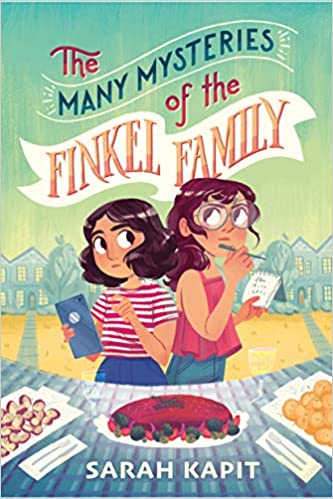
Tween sisters Lara and Caroline start a detective agency and end up taking a closer look at their own family mysteries. Each sister has different characteristics on the autism spectrum. This is an affirming title for kids with similar experiences, written by an autistic author. It’s also a great discussion book to explore characterization and relationships.
Buy it: The Many Mysteries of the Finkel Family on Amazon
29. Honestly Elliott by Gillian McDunn
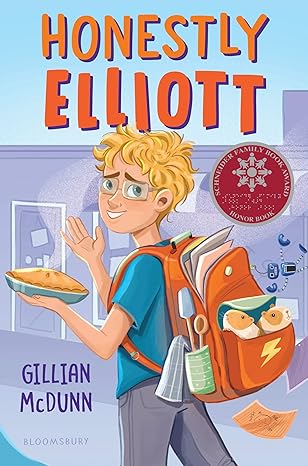
This highly relatable coming-of-age story includes details about Elliott’s experiences having ADHD. It’s mostly about finding yourself and finding a friend though. Kids who love cooking will especially enjoy this story.
Buy it: Honestly Elliott on Amazon
30. The Deadly Daylight by Ash Harrier
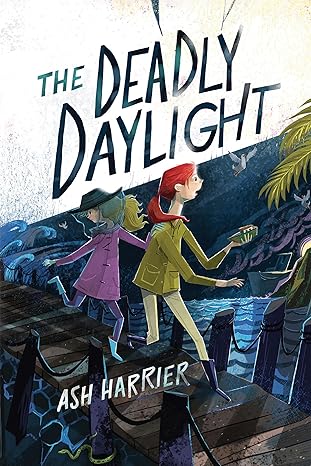
This quirky (but not scary) mystery series opener introduces Alice, who helps out after school at her family’s funeral home. Alice stumbles into an intriguing quest to figure out how one of the deceased people, who had a rare allergy to sunlight, died. Alice has muscular atrophy of one leg, which impairs her mobility; this detail gets recurring mentions but isn’t the focus of the plot.
Buy it: The Deadly Daylight on Amazon

